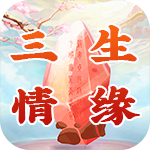1. 表示比較的英語句型和短語有哪些
I. 重點短語 1. Sit down 2. on duty 3. in English 4. have a seat 5. at home 6. look like 7. look at 8. have a look 9. come on 10. at work 11. at school 12. put on 13. look after 14. get up 15. go shopping II. 重要句型 1. help sb. do sth. 2. What about…? 3. Let's do sth. 4. It's time to do sth. 5. It's time for … 6. What's…? It is…/ It's… 7. Where is…? It's…. 8. How old are you? I'm…. 9. What class are you in? I'm in…. 10. Welcome to…. 11. What's …plus…? It's…. 12. I think… 13. Who's this? This is…. 14. What can you see? I can see…. 15. There is (are) …. 16. What colour is it (are they)? It's (They're)… 17. Whose …is this? It's…. 18. What time is it? It's…. 初一英語上學期句型與詞組 句型: 1. I'm a teacher and I'm Chinese. 2. He is my friend. 3. We're students. 4. Are you a new student? 5. They aren't English. 6. I can play football. 7. Tony can't swim. 8. Can you ride a bike? 9. Yes, I can. / No, I don't. 10. Are there any school offices? 11. Yes, there are. There are some offices. 12. Is there a computer on Miss Li's desk? 13. No, there isn't. 14. There aren't any computers on our desks. 15. We've got a small family. 16. He hasn't got a big family? 17. Yes, I have. / No, I haven't. 18. Have we got any fruit? 19. Yes, we have. / No, we haven't. 20. We've got some oranges and some apples. 21. We haven't got any melons. 22. Would you like to go to the cinema? 23. Let's go in the evening. 24. It's at the cinema. 25. It's on Sunday. 26. I talk to my friends. 27. You have dinner in the evening. 28. We have art and history. 29. They don't start at eight o'clock. 30. I always listen to music. 31. She usually wears silk shirts. 32. We often make a cake for his birthday. 33. He never plays computer games. 34. Does the panda come from China? 35. Yes, it does. 36. Is the kangaroo Australian? 37. Yes, it is. 38. What do you usually do on your computer? 39. How many emails do you send? 40. Do you often go online? 41. Do you make travel plans on the internet? 詞組: 1. next to 2. in front of 3. lots of 4. a lot of 5. at once 6. come from 7. like to 8. in the wild 9. keep healthy 10. stay healthy 一. 詞匯 ⑴ 單詞 1. 介詞:in, on, under, behind, near, at, of 1). in表示"在……中", "在……內"。
例如: in our class 在我們班上 in my bag 在我的書包里 in the desk 在桌子里 in the classroom 在教室里 2). on 表示"在……上"。例如: on the wall 在墻上 on the desk 在桌子上 on the blackboard 在黑板上 3). under表示"在……下"。
例如: under the tree 在樹下 under the chair 在椅子下 under the bed 在床下 4). behind表示"在……后面"。例如: behind the door 在門后 behind the tree 在樹后 5). near表示"在……附近"。
例如: near the teacher's desk 在講桌附近 near the bed 在床附近 6). at表示"在……處"。例如: at school 在學校 at home 在家 at the door 在門口 7). of 表示"……的"。
例如: a picture of our classroom 我們教室的一幅畫 a map of China 一張中國地圖 2. 冠詞 a / an / the: 冠詞一般位于所限定的名詞前,用來署名名詞所指的人或事物。冠詞有不定冠詞和定冠詞兩種。
不定冠詞有兩個形式,即a和an。a用在以輔音音素開頭的詞前,如a book; an用在以元音音素開頭的字母前,如an apple. a或an與可數名詞單數連用,泛指某類人或某物中的一個。
This is a cat. 這是一只貓。 It's an English book. 這是一本英語書。
His father is a worker. 他的爸爸是個工人。 the既可以用在可數名詞前,也可以用在不可數名詞前,表示某個或某些特定的人或事物,也可以指上文提到過的人或事物。
Who's the boy in the hat? 戴帽子的男孩是誰呀? ------ What can you see in the classroom? ------ I can see a bag. ------ Where's the bag? ------ It's on the desk. ------- 你能在教室里看到什麼呀? ------ 我能看見一個書包。 ------ 書包在哪呀? ------ 在桌子上。
3.some和any ①在肯定句中用some.例如: There are some books on the desk.桌子上有一些書。 Lucy has some good books露西有一些好書。
②在疑問句和否定句中用any。例如: Is there any ink in your pen?你的鋼筆里有墨水嗎? Do you have any brothers and sisters?你有兄弟姐妹嗎? There isn't any water in the glass.杯子里沒有水。
⑵記住它們的特殊用法。 ①some亦可用于表示盼望得到對方肯定的答復或表示建議、委婉請求的疑問句中,這一點我們不久就會學到。
例如: Would you like to have some apples?你想吃蘋果嗎? ②any也可用于肯定句中,表示"任何的"。例如: Any one of us can do this.我們當中任何一個都能做這個。
some 和any的用法是經常出現的考點,希望大家能準確地掌握它們的用法。 4.family family看作為一個整體時,意思是"家庭",后面的謂語動詞be用單數形式 is ;如把family看作為家庭成員時,應理解為復數,后面的謂語動詞be應用are。
My 。
2. 求英語中表示對比的連接詞和短語,如by contrast
compare with 與…比較
(as) compared with 與…比較
in comparison with 與…比較
without (or beyond,past ) compare(n.)(or comparison)無與倫比
by comparison 比較起來
in the light of 比照
comtrast(v.) with 與…比較
in comtrast(n.) with (or to)與。形成對照
3. 英語中句子與短語的區別
有or啊·· 用于句型“祈使句+or+陳述句”中,表示在以祈使句為條件下的相反假設,意為“否則,要不然”。
如果是短語的話 不能用連詞吧··連詞只能連接詞與詞,短語與短語以及句與句。不能連接短語和句子的!!
祈使句(Imperative Sentence)
定義:用于表達命令、請求、勸告、警告、禁止等的句子叫做祈使句,祈使句最常用于表達命令,因此在學校文法中也常稱為命令句。
祈使句因對象(即主語)是第二人稱,所以通常都省略。祈使句的動詞都為一般現在時,句末則使用句號來表示結束。例:
Go and wash your hands.
(去洗你的手。——命令)
Be quiet, please.(Please be quiet.)
(請安靜。——請求)
Be kind to our sister.
(對姊妹要和善。——勸告)
Watch your steps.
(走路小心。——警告)
Look out!Danger!
(小心!危險!——強烈警告,已如感嘆句)
Keep off the grass.
(勿踐草坪。——禁止)
No parking.
(禁止停車。——禁止)
祈使句也常把主語“You”表達出來,使對方聽起來覺得柔和些,例如:
You go and tell him, Chris. (克立斯你去告訴他。)
4. 英語表示“例如”的幾個詞的區別
for example=for instance,放在句子中,后接句子,后要打逗號而such as 接詞組,不要打逗號 且1.for example用來舉例說明某一論點或情況,一般只舉同類人或物中的"一個"為例,作插入語,可位于句首、句中或句末.What would you do if you met a wild animal - a lion, for example? 如果遇上野獸,例如獅子,你該怎麼辦? (2) such as用來列舉事物時,一般列舉同類人或事物中的幾個例子.插在被列舉的事物與前面的名詞之間,as后面不可有逗號.例如: Some of the rubbish, such as food, paper and iron, rots away over a long period of time. 有些廢物,如剩飯、廢紙和廢鐵,時間一久就爛掉了.3.such that “如此,以至于.”這里such做代詞,表示“如此好/壞的事/東西/程度” 這和such.that。
中做副詞的such不同. 例: Their anxiety was such that they could not sleep. 他們如此焦慮,難以入睡. 4.for instance就是as an example / for example的意思for example后面通常加具體東西;for instance后面通常加事情.。
5. 表示結果的英語短語和詞語
so 有的時候可以表示結果,比如:there was no one there, so I went away
accordingly 在此同意:the thing had to be done. Accordingly we did it.
consequently =as a result
亦做:in consequently: by consequently
從句句式:with the result /consequence that +從句
at the end ;
at last
等等都可以引出結果
6. 用英語描述日常物品的詞組和句子
你這個范圍太大了,我想起什麼就寫什麼吧。
There be:有
There are many books on the shelf.
Include:包括
This equipment includes three parts.
Take:花費
The car I bought yesterday took me 300,000yuan.
Cost:花費
It costed me 200yuan to come here by taxi.
Be used for:用來做什麼
This machine is used for cutting trees.
Be made from:用什麼制造的
My bed is made from wood.
Introduction:介紹;說明書
Here is the introduction of this air-conditioning.
你最好留言給我告訴我你想描繪的東西大概是些什麼,我好給你寫篇短文什麼的。
7. 用英語表達'著名'的同義詞或詞組
outstanding 杰出的
immortal 不朽的
legendary 傳奇的
illustious 輝煌的;著名的
eminent杰出的
exemplary 模范的,典范的
matchless 無與倫比的
excellent 優秀的,杰出的
celebrated 著名的 (distinguished, famous)
notable 著名的,險要的
noted 著名的,知名的
classic 第一流的(這個也算吧?)
那啥..臭名昭著的同義詞我就不說了..- -估計不是你問問題的本意..

















